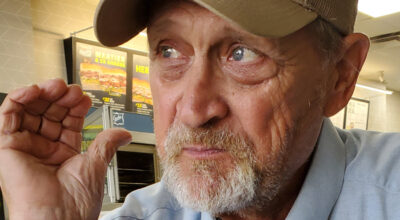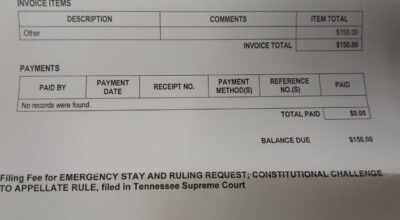








CHATTANOOGA, Tenn., Thursday, Aug. 3, 2023 — As if the snowy altitude of Davos were too high, Mayor Tim Kelly has taken the funicular to the valley to search out ordinary Americans among the “legacy population,” as he calls them, sweating under inflation and a summer sun, less likely to be impressed with globalspeak than when he was selected.
By David Tulis / NoogaRadio Network
His “state of the city” presentation today with TV3 anchor Greg Glover on a third-floor stage at Memorial Auditorium gives Mayor Kelly an argument in the alternative. His update about “One Chattanooga” comes in American vernacular largely absent the distinct New World Order tongue flapping in policy documents such as his “climate action plan,” requiring translation.
“The genesis of the plan was my blueprint, my thesis, for how we find our way to that spot of really being that [best] city in the United States. And I fervently believe Chattanooga has the potential to do that. But we can’t do that until we address some of these really pressing problems” such as racial disparity in “outcomes.” These are “shocking, terrible, they still are — right?”
“You’ve taken some big swings *** as far as the economy goes,” Mr. Glover says, citing the South Broad project including the F$100 million Lookouts stadium, the bend and One Westside, “huge deals.”
The mayor says required reading for key staff is Mitchell Weiss’ book, We the Possibility: Harnessing Public Entrepreneurship to Solve Our Most Urgent Problems, that helps blur the line between public and private in line with World Economic Forum and U.N. thinking. Says a pitch for the volume, “entrepreneurial spirit and savvy in government are growing, transforming the public sector’s response to big problems at all levels. The key, Weiss argues, is a shift from a mindset of Probability Government — overly focused on safe solutions and mimicking so-called best practices — to Possibility Government. This means public leadership and management that’s willing to boldly imagine new possibilities and to experiment.”
Mr. Kelly says the book urges people to “start taking” risks. Possibility thinking by the state and its boosters, Prof. Weiss seems to forget, began in the 1880s in the progressive era, ending in the late 1930s overthrow of key resistance in Lochner v. New York (1905) as the absolutist regulatory welfare-warfare state enters into its state of full self-awareness independent of the American people, as described by Garet Garrett and other writers.
Mr. Kelly is a promoter of the Klaus Schwab “Great Reset” to end free market capitalism, honest money and local self-determination in the name of local self-empowerment and economic development. Mayor Kelly plays to the Schwab constituency on one hand, and to the skeptical hoi polloi with the other in his “by golly” display of personality and down-to-earth unscripted chat with Mr. Glover.
“Tax increment financing” is used to “propel” investment, Mr. Kelly says. That is “really about as close to alchemy as you can get from a financial perspective because the investment needed to make the improvements comes out of the private investment coming in to build all of the improvements which wouldn’t happen if hadn’t offered the TIF.”
“The key is the increment,” he explains. Brownfield development of nearly worthless, damaged land is boosted by city hall and city council votes. A TIF “takes the increment created by the rise in property tax values created by the investment and diverts that, that would have gone to the general fund, and diverts that toward key infrastructure investments.”
The capitalist developer leverages future tax proceeds. Uncle Sam and financiers have drained almost all credit from the economy, and what’s left are cheap tricks to keep the growth Ponzi scheme, as Chuck Mahrom calls it, going another 20 years. (See Mahron’s Strong Towns: A Bottom-Up Revolution to Rebuild American Prosperity, 2019).
Mr. Kelly uses loaded words in their unloaded or “safety on” sense, with “workforce development” intended to mean helping working people get and keep jobs. Loaded, workforce devourment refers to contract tracing and data mining in labor, where worker drones and tax mules in poorer districts are enumerated, commodified and financialized in Mr. Kelly’s data-based dashboard-run guided future. Dr. Schwab founded the WEF as a hub for European corporate managers, and intends that no one be left behind.
Rather than concede inflation and grants bring Chattanoogans into subjugation to Washington, he frames future inflows based on leverage in positive light. “The ‘choice neighborhoods grant’ *** that TIF increment will act as a downpayment to trigger another F$50 million in federal investment, directly from the federal government in the form of this choice neighborhoods grant, which then triggers another $90 million in low income tax credits to create, to build, a brand new neighborhood. *** This is thinking big. *** We’re thinking plenty big. This is big thinking.”
Mayor Kelly says the city is what one wit calls the “buckle of the battery belt,” part of the “new green economy” that “we are squarely in the middle of. *** Most of our upside economic opportunity,” he says, is tied to what critics describe as a dystopian techno-economic model marketed by the Klausenschwabean build-back-better elite intended to conclude with depopulation and insect sandwiches.
In no way does Mr. Kelly see the political economy as taking any negative turns in that direction.
Despite sweeping economic development talk, Mr. Kelly cannot escape stating a conclusory claim about municipal government: “We are the problem solvers of last resort,” Mr. Kelly says. That means pothole repair, the budget for which Mayor Kelly has doubled. 40,000 potholes is the number Mayor Kelly reports.

